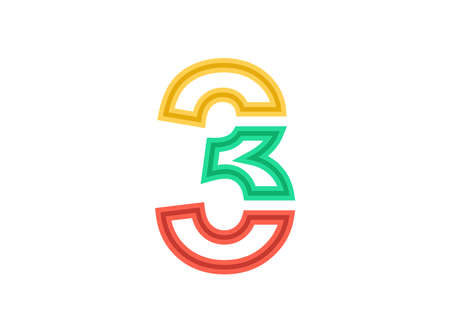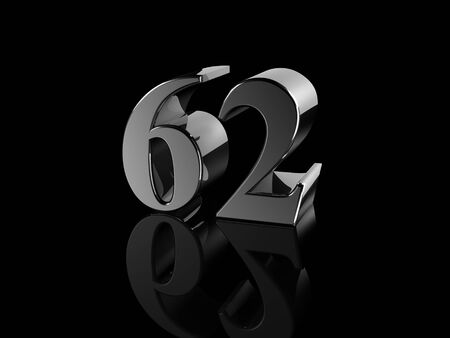Introduction: Justice in Tarot and American Culture
When we turn over the Justice card in a Tarot deck, we are greeted by striking symbols of balance, truth, and impartiality. These concepts are not just mystical ideals—they echo deeply within the foundation of American society. The image of Lady Justice, blindfolded and holding balanced scales, is familiar in courtrooms across the United States. She represents a collective hope that fairness and accountability prevail. In this article, we’ll explore how the Justice card’s ancient wisdom intersects with core American values like equality under the law, personal responsibility, and the belief that our actions—good or bad—create ripples through our lives and communities. Through this lens, we see that Tarot’s Justice is more than a card; it’s a mirror reflecting America’s ongoing quest for harmony between individual freedom and social order, reminding us that true justice requires both compassion and clarity.
2. Karma and Consequence: The Energy of Fairness
When we talk about karma in a modern American context, it’s easy to think of it as “what goes around comes around”—a phrase that echoes through our daily lives, from playground justice to high-profile court cases. But karma is more than just cosmic payback; it’s an ongoing interplay of our actions and their ripple effects on the world around us. Through the Tarot lens, especially with the Justice card, karma reflects how each choice—no matter how small—contributes to the grand mosaic of fairness and consequence.
Personal Karma in Everyday Life
In American culture, individualism is celebrated, yet there’s a deep-rooted belief that our actions matter beyond ourselves. Every time you choose honesty over convenience or stand up for someone being treated unfairly, you’re participating in this energetic cycle. The decisions we make can seem insignificant in the moment, but they accumulate, shaping our reputation, relationships, and even our opportunities.
Examples of Everyday Karma
| Action | Immediate Consequence | Long-Term Impact |
|---|---|---|
| Returning lost wallet | Gratitude from owner | Trustworthiness recognized in community |
| Spreading rumors at work | Tension among coworkers | Damaged professional reputation |
| Volunteering at a shelter | Satisfaction & connection | Strengthened sense of purpose, expanded network |
The Collective Tapestry: Karma on a Larger Scale
Karma doesn’t just exist on an individual level—it’s woven into the fabric of American society. When communities act together for justice—protesting unfair laws or supporting marginalized groups—they generate powerful energy for change. The movements for civil rights, gender equality, and environmental protection are all examples of collective karma in action. These efforts may not yield instant results, but they plant seeds for future generations to reap fairness and progress.
The Interconnectedness of Actions and Justice
The U.S. justice system itself attempts to embody this karmic principle: actions have consequences. While the ideal is fairness for all, we know real-life outcomes can be complicated by bias or inequality. Yet every effort toward reform—each vote, petition signature, or courageous testimony—nudges the scales closer to true justice. As Tarot reminds us, the energy we put into the world returns to us multiplied, urging us to act with integrity and awareness both personally and as part of our larger American story.

3. The U.S. Justice System: Aspirations and Realities
The American justice system stands as a pillar of democracy, founded on ideals of fairness, equality, and impartiality. At its core, it strives to embody the spirit of the Justice card—a figure holding balanced scales and a double-edged sword, symbolizing truth, reason, and accountability. In its highest form, the system seeks to ensure that every individual receives equal treatment under the law, echoing the tarot’s call for objective discernment and karmic balance.
Yet as we journey deeper into this reality, we must acknowledge that aspirations do not always align with outcomes. Disparities in legal representation, systemic biases, and inconsistencies in sentencing reveal cracks in the foundation. Marginalized communities often face disproportionate challenges, while access to justice can be hindered by socioeconomic barriers. Here, the shadow side of the Justice card emerges—reminding us that while justice is an ideal, human imperfection can tip the scales.
Despite these imperfections, the U.S. justice system also holds space for redemption and reform. Like karma in motion, past injustices fuel ongoing conversations about equity and restorative practices. The symbolism of the Justice card invites us to reflect: Are we truly living up to our highest values? Where do we need greater clarity or courage to recalibrate the scales?
In embracing both strengths and shortcomings, Americans are called to participate in a collective journey toward a more just society. The tarot’s Justice card does not promise perfection—it guides us to seek alignment between intention and action, learning from history while cultivating hope for transformation. Each step forward is a testament to resilience and a reminder that justice is not a static destination but an evolving path shaped by our choices.
4. Personal Responsibility: Aligning With Inner Justice
When we think of justice, it’s easy to focus on courts, laws, and the larger systems at play. But the Justice card in Tarot reminds us that true fairness begins within. In the American context, where individual freedom and accountability are core values, the idea of personal responsibility resonates deeply. Justice calls each of us to step up—to own our choices, acknowledge our actions, and face their consequences with honesty.
This inner reckoning isn’t always comfortable. Sometimes the world feels unfair, or outcomes seem skewed by luck or privilege. Yet, aligning with inner justice means we don’t use these external imbalances as excuses for self-deception or avoidance. Instead, we look inward, striving to be honest with ourselves about our motives and impacts. This is how karmic balance takes root—by facing what’s real in our lives and choosing to make amends when necessary.
Accountability in Action
Personal responsibility is a practice. It means reflecting on our words and deeds, asking ourselves tough questions, and being willing to course-correct. In both the spiritual wisdom of Tarot and the ideals of the U.S. justice system, this kind of accountability is foundational to growth and healing.
| Justice Card Wisdom | U.S. Cultural Values | Everyday Practice |
|---|---|---|
| Truth-seeking | Honesty & Integrity | Admit mistakes openly |
| Karmic balance | Consequences for actions | Make amends when you’ve hurt someone |
| Responsibility for choices | Personal accountability | Own your decisions—good or bad |
| Pursuit of fairness | Equal opportunity & justice for all | Speak up against injustice, even in small ways |
The Power of Making Amends
One powerful way to align with inner justice is through making amends—a concept rooted both in spiritual practice and American restorative justice initiatives. Whether it’s apologizing for a harsh word or taking steps to repair harm done, this act restores balance not only in relationships but also within our own hearts.
Courageously Seeking Truth in an Unjust World
The truth is, the world isn’t always fair. But when we consistently strive to do what’s right—even if no one else is watching—we cultivate resilience and self-respect. The Justice card urges us to keep pursuing truth and fairness inside ourselves, trusting that each small act of integrity contributes to a more balanced world.
5. Restoring Balance: Navigating Social and Emotional Healing
The Justice card, glowing with impartial wisdom, reminds us that restoring balance is not just a legal matter—it’s an emotional and communal journey. In the U.S., where the pursuit of justice often feels tangled in complexity and controversy, we’re called to look beyond courtrooms and into our hearts. The Tarot’s Justice asks us: How can we, as individuals and communities, cultivate fairness, empathy, and healing?
Healing Begins Within: Personal Accountability
True justice starts on a personal level. The Justice card encourages us to reflect honestly on our own actions and beliefs. Can you listen without judgment? Are you willing to admit when you’re wrong? Self-accountability nurtures emotional healing and sets an example for others. In American culture—where individualism is prized—this inward work becomes even more vital. By embracing vulnerability and owning our stories, we foster trust and authenticity within our circles.
Cultivating Empathy in Divided Times
The United States’ diverse fabric can sometimes lead to misunderstanding or polarization. The Justice card guides us to lean into empathy, seeking to understand perspectives different from our own. This might look like community dialogues, support groups, or simply sharing space with someone whose experience challenges your worldview. Small acts of empathy—like checking in on a neighbor or volunteering at a local organization—reverberate powerfully, helping heal collective wounds.
Advocacy and Fairness: Community Action
Justice isn’t passive; it asks for action rooted in compassion. Americans have a rich history of grassroots activism—from civil rights marches to neighborhood mutual aid networks. Inspired by the Tarot’s call for fairness, you can advocate for change locally: join restorative justice initiatives, support policies that reduce inequality, or mentor youth navigating challenging environments. Each step toward equity honors the spirit of the Justice card.
Together Toward Wholeness
As we move forward, let’s remember: balance is dynamic, not static. Healing takes time, patience, and a willingness to grow together. When communities and individuals align their actions with the values of fairness and compassion inspired by Justice, they become beacons of hope—lighting the way toward a future where everyone has the chance to thrive.
6. Destiny and Choice: The Ongoing Journey of Justice
Justice, as seen through the Tarot, invites us to look beyond black-and-white outcomes and step into the ever-shifting tapestry of destiny and choice. In American culture—where the pursuit of justice is woven into our founding documents and daily lives—its tempting to view each verdict or legal decision as an ending. But just like the scales held by Lady Justice, life is always balancing, recalibrating, and asking us to participate in its unfolding.
The Dance Between Fate and Free Will
The Justice card teaches that fairness isnt only about what happens to us, but how we respond. Fate may hand us circumstances—sometimes unfair, sometimes unexpectedly generous—but its our choices that shape the next chapter. In the U.S., where opportunity and challenge walk side by side, this lesson is especially poignant. Our legal system strives for impartiality, yet its story is written by real people with hopes, flaws, and dreams for a better tomorrow.
Justice as a Living Process
When we see justice not as a static verdict but as a living process, we open ourselves to growth and healing. Maybe you’ve experienced injustice or witnessed someone’s struggle for fairness. The Tarot reminds us that every action creates ripples; every decision can tip the balance toward greater equity. Karma isn’t just mystical payback—it’s the accumulation of choices, both personal and collective, shaping our communities and our country.
Embracing the American Spirit
To be American is to believe in reinvention, redemption, and resilience. Justice in this context asks us to continually seek truth—not just in courtrooms but in our conversations, workplaces, and hearts. When we stand up for what’s right or extend compassion where it’s needed most, we become co-authors in the story of justice.
So let the Tarot’s Justice card be your gentle guide: Fairness isn’t finished when the gavel falls. It lives on in every choice you make—in how you treat others, advocate for change, and dream of a more just society. Justice is a journey—a beautiful dance between destiny and free will—and you are always invited to step onto the floor.


